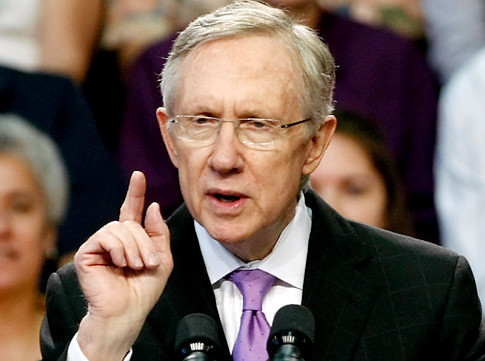Early this week U.S. Senate Majority Leader Harry Reid began the process of pushing to the Senate floor an online tax bill originally titled the Marketplace Fairness Act, bypassing the committee process. The proposal would expand states’ ability to force out-of-state retailers to collect sales taxes for online and mail-order sales even if the seller has no physical presence in the state.
This would give states a vast new power over retailers outside their borders, including the imposition of tax auditing requirements. States would be allowed to create their own unique definitions of how and when items are taxed, increasing confusion for out-of-state sellers.
Proponents argue the proposal confirms the ability of states to charge sales taxes as they see fit, and they have begun to frame the issue as a matter of states’ rights. In a letter to the Senate, David French of the National Retail Federation argued the tax changes are needed to modernize the market.
“The Marketplace Fairness Act is a commonsense piece of legislation necessary to modernize our federal and state understanding of sales tax laws so that they can keep current with real-world change in the marketplace,” wrote French.
Taxing Powers Expansion
Allowing one state to tax a resident of another state, however, represents an expansion of state taxing powers, which logically should end at the state’s borders, said John Nothdurft, director of government relations at The Heartland Institute.
“The so-called Marketplace Fairness Act is a massive expansion of taxing authority that could open the door to a Pandora ‘s Box of other new taxes. By gutting the physical presence standard and as a result tax competition among the states, this proposal would drive up taxes on everyone,” said Nothdurft in a statement.
“This would create two different tax systems for sales by forcing online or mail order businesses to collect sales taxes where the customer is located rather than where the actual business is located, while brick-and-mortar stores will continue to enjoy collecting based on the location of their business. If you believe that our government needs to open up taxation powers and tax consumers even more then this is the proposal for you.”
Likelihood of Higher Taxes
Another criticism of the Marketplace Fairness Act is its effect on tax competition. Online taxes are likely to lead states to impose tax increases, noted Katie McAuliffe, federal affairs manager at Americans for Tax Reform, in a Townhall.com article.
“Of even greater concern is that a remote sales tax will create competition among states for higher taxes, rather than lower taxes. Currently, states can only tax those consumers who reside within their borders,” she wrote. “This ‘physical presence standard’ ensures that the businesses taxed by states have the ability to express their approval or displeasure with state tax code through elections, referendums, etc. This legislation encourages states to collect taxes across their borders from businesses with no recourse. Thus states will compete for revenue by increasing cross-border taxes, rather than lowering taxes. An incentive to raise taxes can never prove beneficial.”
Concerns Over Services Taxation
The Securities Industry and Financial Markets Association also fears Internet taxation could spread to services.
“We believe the impact of this legislation on trade in services has not been adequately explored by Congress. The bill could lead to unexpected costs being passed on to consumers of financial services, including sales taxes on services or state-level stock transaction taxes,” said SIFMA Acting President and CEO Kenneth E. Bentsen, Jr. in a statement.
“We continue to oppose any kind of financial transaction tax as they are, essentially, a sales tax on investors. Such levies are simply passed onto ordinary retail investors and retirees, reducing the incentive to save, and distorting capital markets. We urge Congress to hold hearings on the impact of this legislation on the national market for trade in services, including financial services, before moving forward.”
Need for Debate
Matt Kibbe, president and CEO of FreedomWorks, argued in a letter to his organization’s members the Senate would be wrong to rush a vote on the bill. It instead should receive the scrutiny it deserves.
He wrote, “more important than the larger issue of how the proposed internet sales tax works is the fact that such a radical change in accepted practices of taxation needs to be debated openly and at length in committee. Instead, the point of an amendment creating a reserve fund that deals with state sales taxes is that the generic, innocuous language of said amendment is likely to escape the notice of many Senators. But once passed, the amendment would be used to demonstrate that other bills that dramatically expand state tax authority have enough support to be fast-tracked to the floor.”




